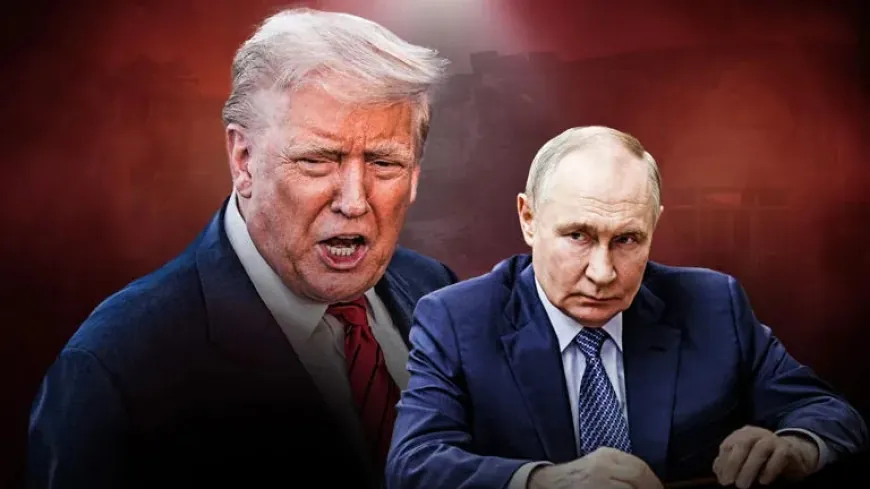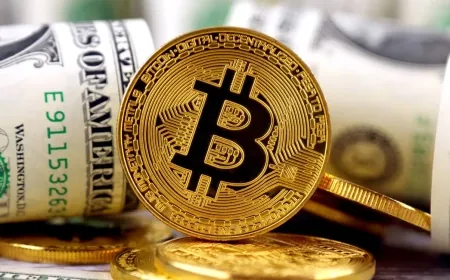Trump to Talk to European Leaders Before Alaska Summit With Putin – Ukraine Peace at Stake
Trump will speak with European leaders before meeting Putin in Alaska as discussions focus on Ukraine’s future and coordinating allied strategy.

Washington, Brussels, Kyiv — U.S. President Donald Trump confirmed on Wednesday that he will hold several calls with European leaders ahead of his summit with Russian President Vladimir Putin in Anchorage, Alaska, scheduled for Friday. The consultations aim to coordinate positions on sanctions enforcement, military aid, and Ukraine’s territorial integrity.
German Chancellor Olaf Scholz reportedly emphasized to Trump that any negotiations must fully include Ukrainian President Volodymyr Zelenskiy, especially regarding areas under Russian occupation in Donetsk and Luhansk. French Foreign Minister Catherine Colonna stressed that no agreement should recognize Russian annexation of Crimea or violate international law.
U.S. officials noted that these calls are intended to avoid misunderstandings with allies and ensure that Washington maintains a united Western front. The Alaska summit, the first direct face-to-face meeting between Trump and Putin on U.S. soil, carries both symbolic significance and tangible geopolitical consequences, as the war in Ukraine continues into its fourth year.
Kyiv Demands Direct Role in Talks
Kyiv has made clear that it must participate directly in any negotiations affecting Ukrainian territory. President Zelenskiy has stated that any territorial concessions would require constitutional approval and likely a public referendum, making unilateral decisions by foreign powers practically impossible.
Ukrainian diplomats have requested regular updates from the U.S. regarding potential proposals on Donetsk and Luhansk, emphasizing that bypassing Kyiv could compromise Ukraine’s defense planning and sovereignty.
A senior Ukrainian official told local media, “No agreement affecting our land will happen without our explicit approval. Any discussion about our territories without Kyiv is unacceptable.” This insistence highlights Ukraine’s determination to remain central to all diplomatic outcomes.
Sanctions Divide U.S. and Europe
Economic pressure on Moscow remains a contentious issue. U.S. Treasury Secretary Scott Bessent criticized European governments for resisting “secondary sanctions,” which would penalize countries continuing to purchase Russian energy.
“President Trump is meeting with President Putin, and the Europeans are in the wings carping about what he should do. They need to join us in these sanctions,” Bessent said in a Wednesday interview. “The President is creating leverage, and European cooperation is essential.”
European officials, while concerned about Russian energy sales, are wary of secondary sanctions because of potential economic retaliation and energy market disruptions. The EU has focused on enforcing existing sanctions and reducing dependence on Russian oil without destabilizing domestic energy supplies. Analysts warn that disagreement on sanctions could undermine Western cohesion during and after the Alaska summit.
Russia Expected to Press Territorial Claims
Russian diplomats attending the summit are expected to push for formal recognition of Crimea and other territories under Moscow control. Russian state media has highlighted Trump’s willingness to engage directly with Putin, framing the summit as an opportunity to strengthen bilateral dialogue.
U.S. and European officials have stressed that any unilateral concessions could weaken Kyiv’s negotiating position. A senior EU diplomat stated, “Europe will not accept formal recognition of annexed regions without Ukraine’s direct involvement. The stakes are too high.” The summit will test whether Washington can maintain pressure on Moscow while exploring diplomatic solutions.
Energy Imports from India and China Complicate Strategy
Energy trade with Russia by India and China adds additional complexity. Trump recently doubled U.S. tariffs on Indian goods from 25% to 50%, citing continued Russian oil purchases. China, a far larger buyer of Russian energy, has not faced matching U.S. measures, reflecting broader trade and geopolitical calculations.
European officials have expressed concern about the potential impact of punitive measures on global energy markets and domestic economic stability. Coordinating a consistent transatlantic approach to Russian energy imports remains a key challenge for Trump and his administration.
Historical Context: Past Trump–Putin Summits
The Alaska summit follows a series of previous high-level engagements between Trump and Putin. Their 2018 Helsinki summit drew widespread controversy, with Trump appearing to side with Putin over U.S. intelligence on election interference. During his first term, Trump also held multiple calls and informal meetings during crises such as the 2019 Kerch Strait incident and the 2020 Navalny poisoning.
Experts note that these past interactions inform both Trump’s approach and European skepticism. Unlike prior meetings, the Alaska summit occurs during an active war, significantly raising the stakes for military, diplomatic, and legal outcomes.
Impact of Trump-Putin Meeting on U.S. Politics and Congress
Trump’s handling of the summit is likely to influence domestic politics. Supporters may view direct engagement with Putin as a pragmatic attempt to end the war, while critics argue that bypassing Kyiv or European allies could undermine U.S. credibility.
Democrats have indicated they will scrutinize any concessions to Russia as a campaign issue. Within the Republican Party, divisions persist between isolationists seeking a quick withdrawal from foreign conflicts and hawkish members advocating sustained support for Ukraine. Analysts suggest that media coverage of the summit could shape public perception and affect policy debates in Congress regarding aid and sanctions.
Summit Could Change Western Strategy on Ukraine
Ahead of the meeting, Trump is expected to continue transatlantic calls to gauge reactions and align positions. U.S. officials note that these consultations are critical to maintaining a unified Western strategy.
Decisions made during the Alaska summit could have immediate consequences, including changes to military support schedules, sanctions enforcement, and diplomatic initiatives. European and Ukrainian officials will be monitoring closely, knowing that even minor agreements or missteps could significantly influence the conflict on the ground.
Also Read: US–China Extend 90-Day Tariff Pause Hours Before Hike

































































